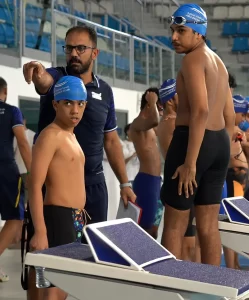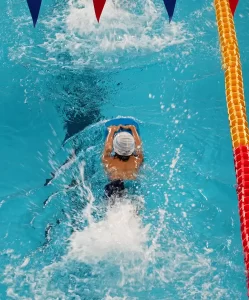World Aquatics
World Aquatics, previously identified as FINA (acronym for Fédération Internationale de Natation in French and International Swimming Federation in English), is esteemed by the International Olympic Committee (IOC) for overseeing global competitions in aquatic sports. It stands among various international federations entrusted with the responsibility of governing specific sports or disciplines for the IOC and the worldwide community.

Swimming
Swimming is a competitive sport that involves both individual and team events, demanding the coordinated use of one’s entire body to navigate through water. Competitions in this sport occur in either pool settings or open bodies of water like seas and lakes. It stands as one of the most prominent Olympic sports, featuring a wide range of distance events in various swimming styles, including butterfly, backstroke, breaststroke, freestyle, and individual medley. Alongside these individual races, team dynamics come into play with relay events, where four swimmers can join forces in either freestyle or medley relay races. In a medley relay, each of the four swimmers specializes in a different stroke, following a sequence of backstroke, breaststroke, butterfly, and freestyle.
Each swimming stroke necessitates a precise set of techniques, and competitive swimming enforces rules governing the correct execution of each stroke. Furthermore, competitions come with strict guidelines dictating the permissible attire, including swimsuits, caps, jewellery, and injury tape. While competitive swimmers can be susceptible to injuries stemming from the sport, such as shoulder or knee tendinitis, it’s important to note that swimming offers numerous health advantages in return.
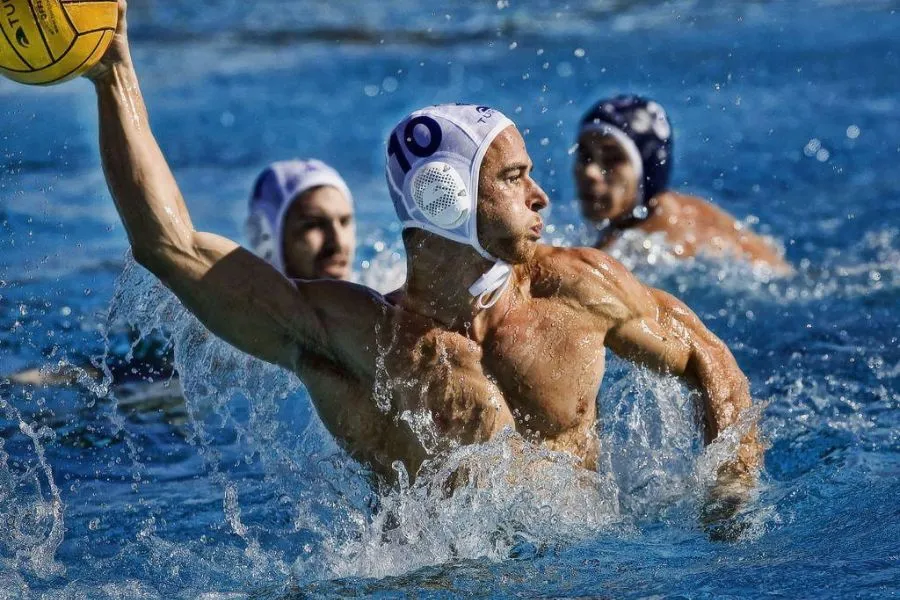
Water Polo
Water polo is an intense team sport played in aquatic environments, pitting two teams, each comprising seven players, against one another. The game unfolds over four quarters, during which these teams vie to score goals by propelling the ball into the opposing team’s goal area. Ultimately, the team that accumulates the highest number of goals by the match’s conclusion emerges victorious.
Diving
Diving entails the art of leaping or descending into water from a raised platform or springboard, often accompanied by acrobatic Maneuvers. This discipline enjoys global recognition as an official sport featured in the Olympic Games. Furthermore, diving is not solely confined to the realm of structured competition; it also serves as a leisurely recreational pursuit.
Divers share several common attributes with gymnasts and dancers, including strength, flexibility, precise kinesthetics judgment, and a keen sense of spatial orientation in mid-air. It’s noteworthy that some professional divers initially honed their skills in gymnastics or dance, owing to the striking resemblances between these disciplines and the sport of diving.
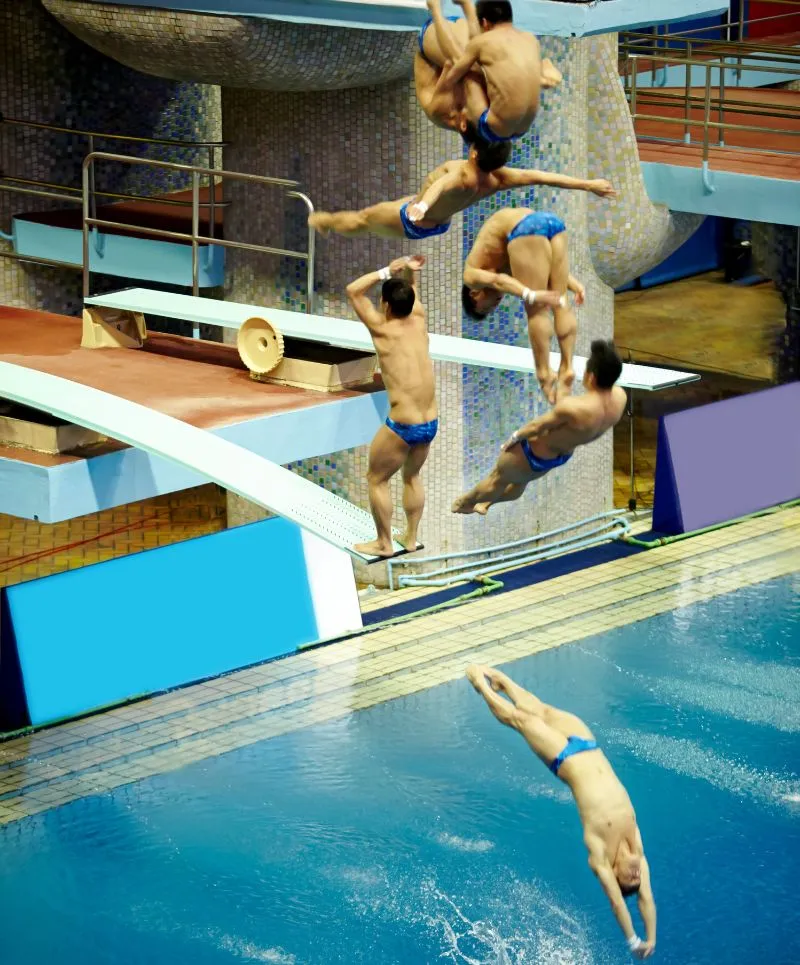
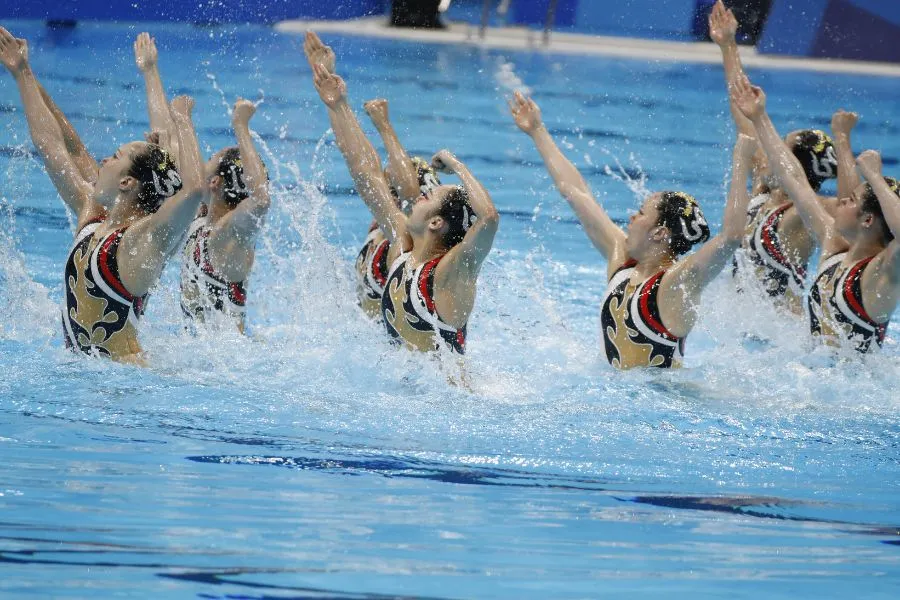
Artistic Swimming
Synchronized swimming, also known as artistic swimming in British English, is a captivating sport where swimmers execute precisely choreographed routines in perfect synchronization, all while accompanied by music. This sport falls under the jurisdiction of the international governing body, World Aquatics, which was formerly known as FINA. Historically, synchronized swimming has been predominantly associated with women’s competitions, but the sport has evolved.
In 2015, FINA introduced a groundbreaking mixed gender duet competition, featuring one male swimmer in each duet, at the World Aquatics Championships. Additionally, LEN (Ligue Européenne de Natation) introduced men’s individual events at the 2022 European Aquatics Championships. Looking ahead to 2024, the Olympics will include a men’s team event, allowing male athletes to compete in this captivating discipline.
Open Water Swimming
Open water swimming is a form of aquatic activity conducted in natural, outdoor settings, including open seas, lakes, and rivers. Competitive open water swimming is governed by the International Swimming Federation (World Aquatics), except when it is part of multi-sport events, which are governed by World Triathlon.
During the inaugural modern Olympic Games in Athens in 1896, the swimming competition took place in an open water environment. In 2000, the Olympic Games first included a triathlon with a 1500 m swim leg, and in 2008, a 10 km open water swim. The FINA World Aquatics Championships has featured open water swimming events since 1992. The FINA World Open Water Swimming Championships was held from 2000 to 2010. Since 2007, the FINA 10 km Marathon Swimming World Cup is held in several events around the world.
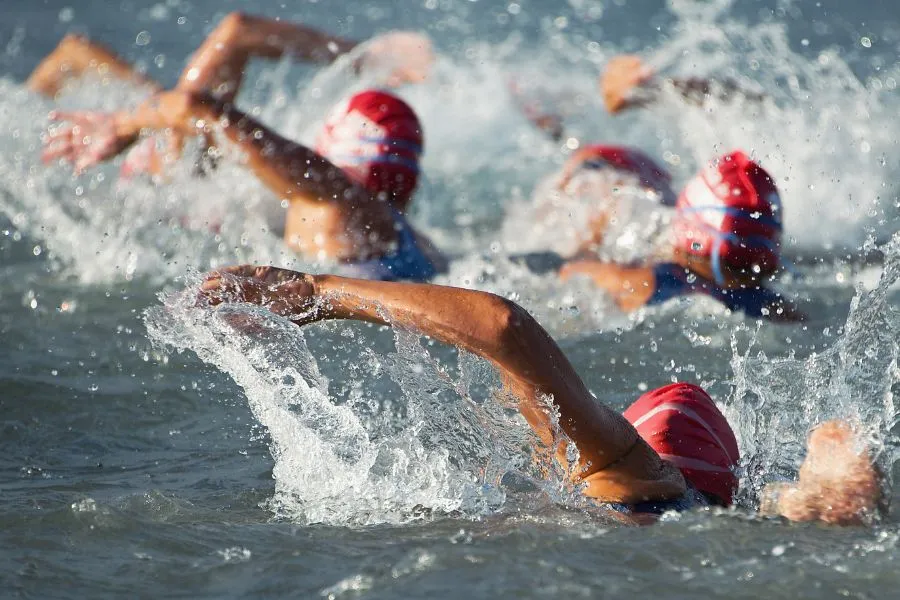

High Diving
High diving involves the daring act of leaping from significant heights into the water. This thrilling activity serves as both an adventurous pursuit, such as cliff diving, and a platform for spectacular performance stunts, including record-setting attempts. Additionally, it is featured as a competitive discipline in various sporting events.
High diving made its debut at the 2013 World Aquatics Championships in Barcelona, having been added to FINA’s roster of disciplines. In world championships, men leap from a towering 27-meter (89-foot) platform, while women take on a 20-meter (66-foot) platform. Official competitions generally see men diving from heights ranging between 22 to 27 meters (72 to 89 feet), and women from 18 to 23 meters (59 to 75 feet). One distinctive aspect of high diving is that athletes often have limited opportunities to practice in conditions similar to those found in competition until shortly before the event. Remarkably, high divers have reached descent speeds of up to 96 kilometers per hour (60 mph).

